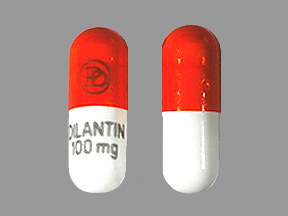Top Class Actions’s website and social media posts use affiliate links. If you make a purchase using such links, we may receive a commission, but it will not result in any additional charges to you. Please review our Affiliate Link Disclosure for more information.

With time, Stevens Johnson Syndrome can cause the patient’s skin to literally fall off, evolving into the deadly Toxic Epidermal Necrolysis (TEN). In most cases, victims of SJS or TEN are treated in hospital burn units.
Symptoms of SJS or TEN include:
- Rash, burns and/or blisters
- Sore throat
- Fatigue
- Flu-like symptoms
- Ulcers
- Lesions
The awareness of Dilantin posing negative health risks comes after a 2008 announcement released by the U.S. Food and Drug Administration (FDA) regarding the risk of Dilantin and SJS/TEN.
Dilantin SJS Lawsuits
With more than 100 Dilantin lawsuits filed nationwide, all with similar allegations that patients suffered SJS or TEN as a direct result of taking Dilantin, there is an increasing likelihood of a Dilantin SJS class action lawsuit.
Though no cases have gone to trial yet, a few cases have already been settled for amounts not disclosed to the public. Pfizer Inc., the maker of Dilantin, began marketing Dilantin in the 1930s specifically as anti-seizure medication.
However, Dilantin has been known to be prescribed by doctors around the country to treat anxiety, panic attacks and even depression. All are off-label uses of the drug.
Many affected victims are filing Dilantin lawsuits also alleging that Pfizer had prior knowledge that Dilantin could cause SJS and/or TEN, but still failed to include a warning on its labels. In addition, the plaintiffs allege that other countries have stricter labels from Pfizer stating that users of African descent are at a higher risk of developing SJS/TEN when taking Dilantin.
Numerous studies show that those of African, Asian, or Polynesian descent carry a gene that could trigger SJS after taking Dilantin.
In general, Dilantin lawsuits are filed individually by each plaintiff and are not class actions.
Do YOU have a legal claim? Fill out the form on this page now for a free, immediate, and confidential case evaluation. The attorneys who work with Top Class Actions will contact you if you qualify to let you know if an individual lawsuit or class action lawsuit is best for you. Hurry — statutes of limitations may apply.
ATTORNEY ADVERTISING
Top Class Actions is a Proud Member of the American Bar Association
LEGAL INFORMATION IS NOT LEGAL ADVICE
Top Class Actions Legal Statement
©2008 – 2024 Top Class Actions® LLC
Various Trademarks held by their respective owners
This website is not intended for viewing or usage by European Union citizens.
Get Help – It’s Free
Help for Victims of Stevens Johnson Syndrome
If you or a loved one were diagnosed with Stevens Johnson Syndrome (SJS) or toxic epidermal necrolysis (TEN) after taking a prescribed or over-the-counter medication, you may be eligible to take legal action against the drug’s manufacturer. Filing an SJS lawsuit or class action lawsuit may help you obtain compensation for medical bills, pain and suffering, and other damages. Obtain a free and confidential review of your case by filling out the form below.
An attorney will contact you if you qualify to discuss the details of your potential case at no charge to you.
Oops! We could not locate your form.












